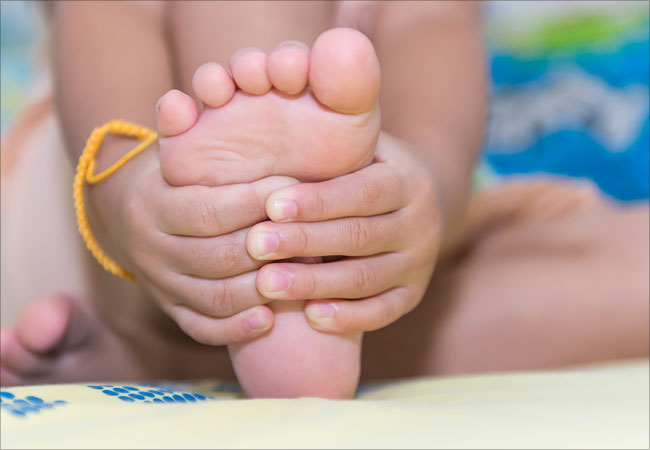Boosting Immunity Can Help Your Body Battle Coronavirus
With panic surrounding Coronavirus hitting our shores, we felt compelled to re-post this article by Professors Peter Brukner and Rob Moodie from yesterdays Age newspaper in Melbourne.
Some people will be exposed to coronavirus and have nil or minimal symptoms, while others become unwell and may even die.
It seems that the elderly, smokers, those with chronic disease and those with compromised immunity are particularly at risk.
The immune system determines the body’s response to an infective agent such as coronavirus and the strength of our immune system can be influenced by a number of factors, most of which we have some control over.
While we can’t do anything about our chronological age, here are some simple steps to strengthen your immune system for now and into the future.
Diet
While there is significant debate about what constitutes a ‘healthy diet’, there is broad agreement that avoiding added sugar and ultra-processed foods is beneficial for your health.
Ultra-processed foods include:
- Junk foods.
- Sweet or savoury packaged snacks.
- Ice-cream, chocolate, confectionery, mass-produced packaged breads and buns.
- Margarines and spreads.
- Biscuits, pastries and cakes.
- Breakfast “cereals”, “cereal” and “energy” bars, “energy drinks”.
- Flavoured milk drinks, fruit yoghurts, soft drinks, fruit juices and drinks with added sugar.
- Tomato and BBQ sauces (added sugar).
- Powdered or “fortified” meal substitutes.
- Many ready-to-heat products such as pre-prepared pies and pasta and pizza dishes.
- Poultry and fish nuggets, sausages, burgers, hot dogs and other re-constituted meat products.
- Powdered and packaged instant soups, noodles and desserts.
Simply removing these foods from your diet and replacing them with “real foods” such as meat, fish, eggs, dairy, non-starchy vegetables (such as broccoli, green beans, cauliflower etc), fruits and healthy fats such as nuts and avocado, will lead to both an improvement in overall health and immune function.
It will also improve the gut microbiome which is increasingly thought to be a vital part of the body’s defence mechanism.
Exercise
The health benefits of regular moderate exercise are widely acknowledged.
Any exercise is better than none and following the national physical activity guidelines of 150 minutes a week of moderate intensity or 75 minutes of vigorous exercise is ideal.
Alternatively, if you are time-poor, high intensity interval training (HIT) which involves a number of short bursts of intense activity is probably just as beneficial.
The type of activity is not as important as finding something you enjoy, as you are much more likely to stick to it.
It doesn’t have to be vigorous – a brisk walk will do. Incorporate walking into your daily routine – leave the car at home, walk to the shops, walk to public transport, park some distance from work, and try taking the stairs instead of the lift.
Instead of meeting a friend for coffee, suggest a walk. Strength is also important especially as we get older.
We lose muscle as we age, so in order to maintain muscle mass you should do some simple strengthening exercises at least twice a week.
Sleep
Both of the above will improve the quality of your sleep, a vital ingredient in maintaining good health and strong immunity.
Research suggests that 40 per cent of us are getting insufficient or poor quality sleep.
Without sufficient sleep, your body makes fewer cytokines, a type of protein that targets infection and inflammation, effectively creating an immune response.
Poor sleep has been linked with obesity, type 2 diabetes, impaired brain function, cardiovascular and other chronic diseases, mental health and cancer.
Our sleep needs vary from person to person, but most people need at least seven hours good quality sleep.
There are many factors that can impair good quality sleep including excess alcohol and caffeine, excessive light exposure from TV and screens before bed, working late at night, poor eating habits and a sedentary lifestyle.
Stress
When we are in a stressful situation, real or imagined, our body releases cortisol and other stress hormones.
In someone who is chronically stressed, the immune system responds less and less to the high cortisol levels leading to reduced inflammatory response to disease-causing organisms such as viruses.
Depending on the cause of your stress there are various techniques to reduce stress.
These include exercise, mindfulness and meditation, yoga, or simply correcting work-life imbalances.
Alcohol
Studies have shown that macrophages, the cells which are the first line of defence against organisms, are not as effective in people who have had a lot of alcohol.
The “safe” amount of alcohol is unclear but it seems that anything more than 1 or 2 standard drinks a day can impair immunity.
Smoking
The coronavirus appears to have a particular predilection for smokers and those with damaged lungs. Despite the overwhelming evidence of the harmful effects of smoking, 13 per cent of Australian still smoke.
Worldwide, one in 10 adults dies from smoking-related illnesses and non-smokers, on average, live 10 years longer than smokers.
It is never too late to stop and there are various techniques which have been shown to be helpful.
Sun
Low levels of Vitamin D are also thought to impair immunity. The best way to maintain adequate Vitamin D is to have regular exposure in small doses to the sun – just avoid getting sunburnt.
It seems that taking Vitamin D tablets is not as effective, but probably better than nothing.
While washing hands, avoiding physical contact such as shaking hands, and sneezing and coughing into your elbow are very important methods of reducing the risk of transmission of the corona virus, it is likely that many of us will be exposed to the virus in the coming weeks and months.
How we respond to the virus will depend on the ability of our immune system to ward off or minimise the severity of the infection, so it makes sense to do everything we can to strengthen that system.
The above measures will have other benefits to your health as well.




